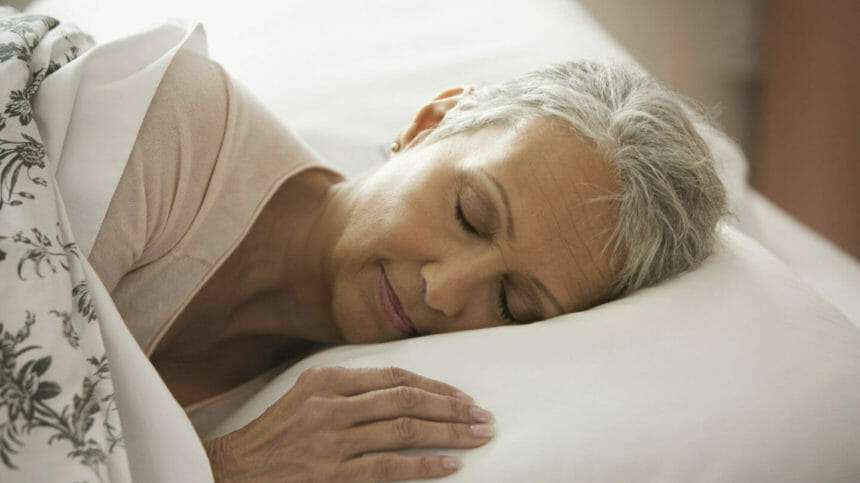
Seven hours of nightly sleep may be the sweet spot for optimal cognitive health in older adults, according to the results of a large study using patient data from the United Kingdom Biobank.
The study, published Friday in the journal Nature Aging, analyzed data from approximately 500,000 adults aged 38 to 73 years old. Participants were queried about their sleep habits and mental health and also received cognitive testing. Nearly 40,000 had received brain scans and had recorded genetic data.
Participants who reported either more or less sleep than seven hours were more likely to have impaired cognition, including deficits in processing speed, visual attention, memory and problem-solving skills, the researchers said. But those who slept for about seven hours each night experienced better cognitive performance and relatively good mental health, they added.
Differences in brain structure associated with memory and cognitive processing were also more common in those with sleep greater or less than seven hours. Consistency of sleep times also was linked to better cognition and well being.
Sleep and dementia
“While we can’t say conclusively that too little or too much sleep causes cognitive problems, our analysis looking at individuals over a longer period of time appears to support this idea,” said Jianfeng Feng, Ph.D., from Fudan University in China.
“But the reasons why older people have poorer sleep appear to be complex, influenced by a combination of our genetic makeup and the structure of our brains,” he said in a statement.
Helping older adults improve sleep “could be crucial to helping them maintain good mental health and well-being and avoiding cognitive decline, particularly for patients with psychiatric disorders and dementias,” added Barbara Sahakian, Ph.D., from the University of Cambridge.
Related articles:
CPAP treatment may not ease sleep apnea in patients older than 80
Most elders use sleep meds, but only half discuss use with their doctors: study




